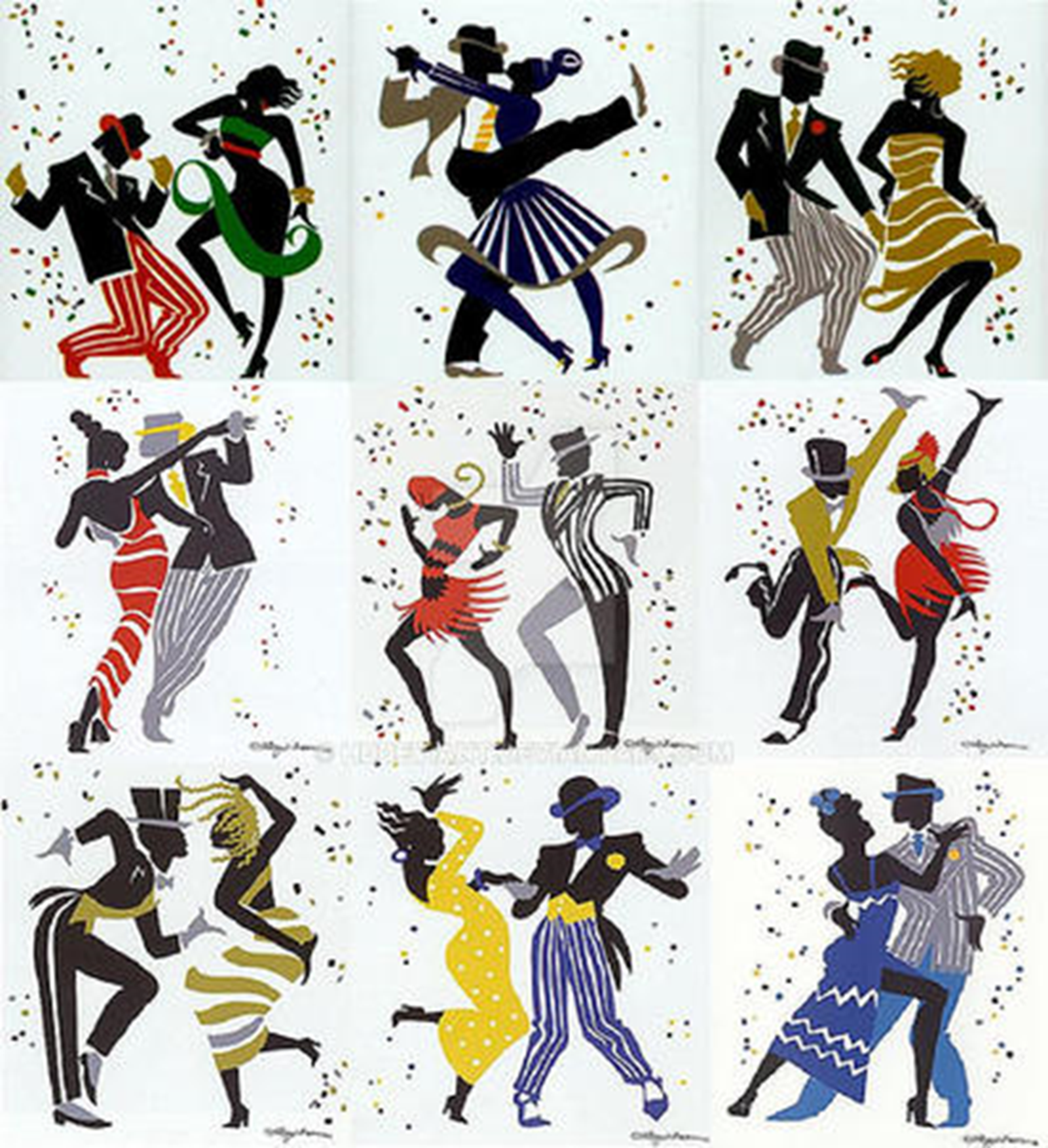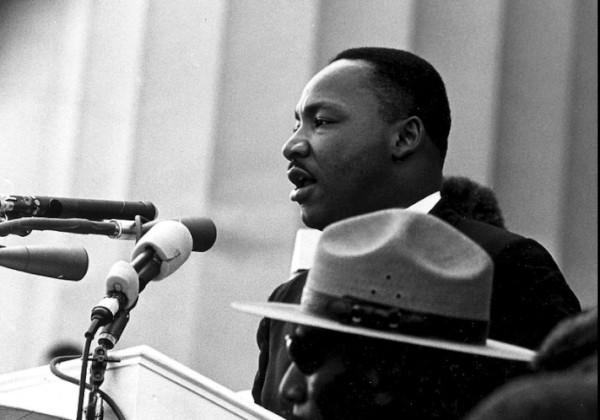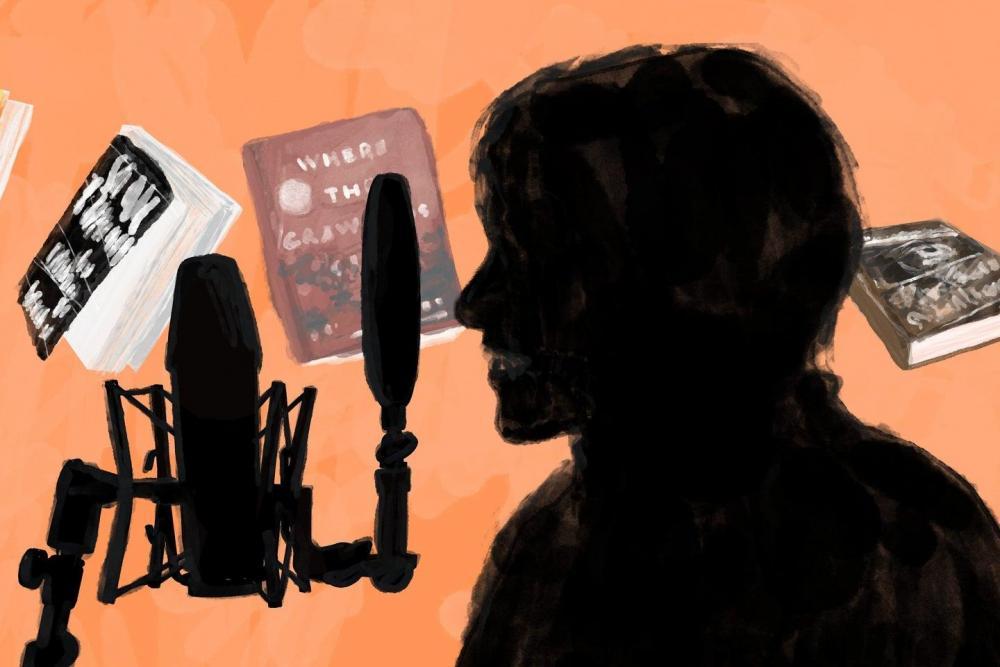
audiobook narration styles future 07/19/2021

Event created by richardmurray
Event details
This event begins 07/19/2021 and repeats every year forever
audiobook narration styles future 07/19/2021
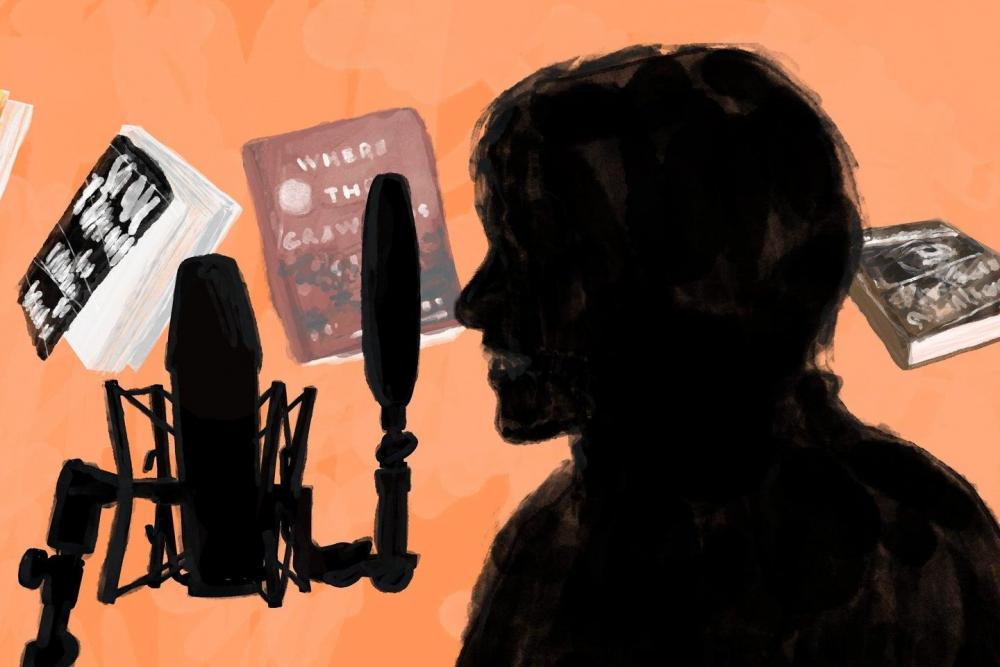
“I Probably Modeled Him on Something I’d Heard on The Wire”
The audiobook industry is collectively squirming through the cultural debate on representation and casting.
BY LAURA MILLER
Twenty years ago, Grover Gardner began narrating a series of comic mysteries whose title character is a white lawyer named Andy Carpenter. In the series—written by David Rosenfelt—Carpenter also has a partner, Willie Miller, who’s a Black ex-con, which means Gardner had to voice Miller too. Back then, he hardly gave any thought to the fact that he was a white narrator voicing a Black man. “I probably modeled him on something I’d heard on television, on Hill Street Blues, or The Wire,” Gardner said. Today, 14 books later, he’s still voicing Willie—but he’s changed his approach. “I’d think very hard about doing that kind of accent now,” he said.
In an era of heightened sensitivity to issues of representation and misrepresentation, it’s no longer acceptable to cast a white actor as a character of color in a movie or TV show. But audiobooks play by different rules. It’s customary now in the audiobook business to try to match a book’s narrator to the gender, race, and sometimes sexual orientation of a novel’s author or main character. Yet most novels feature characters with an assortment of different backgrounds, and this can require narrators to voice characters with identities very different from their own.
When audiobooks first rose to popularity in 1980s, the field was overwhelmingly white. Gardner, who has been an audiobook narrator for four decades and also works as a producer, recalls that, for the first couple of decades of his career, “the whole industry was geared toward middle-aged white businessmen” who listened to “books on tape” while on the road for work. There were hardly any narrators of color, and few female narrators back then, Gardner said. “I recorded Scott Turow’s [1990 novel] Burden of Proof. The narrator of that book is a Latino lawyer,” he told me. “I did it. We did whatever they sent us back then. But I wouldn’t do that book today. You would find a Latino narrator to do it.”
Apart from the amused response to the cartoonish accents Ronan Farrow rolled out when narrating the audio version of his 2019 exposé Catch and Kill, the audiobook world has so far been largely free of the sort of scandals that have triggered reckonings about representation in other creative industries, like magazine publishing and television. This is partly because it’s a low-profile, unglamorous field that doesn’t attract a lot of attention from the press. But many who work in the industry still feel the tensions around casting acutely. Amid a publishing boom in literature by writers of color, nonwhite narrators are being offered more work than they once were. Meanwhile, like most narrators, they find themselves getting asked to voice marginalized characters from backgrounds that bear no resemblance to theirs. January LaVoy, a biracial narrator who identifies as Black, said that cross-cultural audiobook narration is freighted in different ways for white narrators and narrators of color. “For many white narrators, it’s difficult because of fear [of backlash]. For many narrators of color, it’s difficult because of the weight of responsibility.” The industry is grappling with these issues daily. “It’s difficult for everyone,” LaVoy said.
Although some publishers have audiobook divisions, they usually function separately from the print division, and the audio rights for many titles get sold to separate companies such as Brilliance or Blackstone. The producer of an audiobook, who is employed by the publisher, acquires the rights and oversees casting and other big-picture decisions, such as opting for multiple narrators on a novel that often switches points of view.
Michele Cobb, a producer and the executive director of the Audio Publishers Association, told me that she and her colleagues have tried to figure out how they can sensitively ask narrators to provide producers with information about their backgrounds—such as gender identity, sexual orientation, and disability—that can be helpful when casting. Cobb explained that it’s an ongoing challenge to cast appropriate narrators for books by authors of color, while avoiding typecasting. In her own company, which publishes romance audiobooks, “I’ve definitely had authors come back and say, ‘Well, this character is white so I wouldn’t go with a Black narrator,’ ” a choice she feels obliged to respect.
Traditionally, both a director and an engineer, usually both freelancers, work on the recording with the narrator. Director Simone Barros outlined an exhausting list of tasks to me, from making sure the narrator doesn’t skip or add words to researching accurate regional pronunciations and maintaining continuity. “You can get to the last page of the book, and it will mention that a character had a German accent the whole time,” said Barros, speaks with the mile-a-minute lucidness of a person whose job is anticipating every contingency. Barros is of Cabo Verdean descent and identifies as Black.*
In the case of some first-person narrators, such as the one in Charlie Kaufman’s Antkind, an audiobook Barros directed, the book is “written so much within the perspective of the first person that the ethnicity of other characters are specifically heard from the narrator’s perspective of them. More specifically in Antkind, the author’s very point is this shifting, mutable and even unreliable perspective, to shine a light on how too often minority characters go unseen, or only seen or heard through a bias cipher.” But with a book written in the third person, she and her narrator will work up a full voice profile—a cache of recorded dialogue and biographical information—for each speaking character. That way, if, say, a villain appears in a novel’s first few pages only to disappear for several chapters, the narrator and director can remind themselves of what he sounds like. Such profiles are particularly helpful with recurring characters in sequels and series, which may be recorded years later.
In the past, it was largely left up to the professionals behind the scenes to anticipate and head off any problems. Ten years ago, it wasn’t uncommon for a book’s author—the person most intimately acquainted with a title—to have no input at all in the audiobook production. But as audiobooks became a more mainstream and high-profile format, authors began seeking more oversight. Today, writers often get the final say on casting, and are often invited to choose a narrator from a selection of sample recordings and encouraged to provide crucial information about how characters ought to sound. Nathan Harris, a Black writer whose debut novel, The Sweetness of Water, is set at the end of the Civil War, knew the accents of his multiracial cast of characters, who include freed slaves, would be a challenge. “You can go down a very precarious road with how they sound,” he said. “That’s why I didn’t want to do it myself.” His publisher presented him with an audition recording by William DeMeritt. “They told me they could go in all sorts of different directions if that’s what I wanted,” Harris said. “But he just nailed it.”
Over the past few years, the crew of professionals who work on a given book has increasingly been whittled down to a bare minimum, putting greater pressure on narrators’ judgment—even though a narrator, who is in most cases a freelance contractor, doesn’t have much time to carefully screen a book for potential stumbling blocks before agreeing to the job. The exploding demand for audiobooks with the advent of digital downloads and, most recently, an increasing number of home studios built during the pandemic also means that more narrators have ended up doing most of the production work and key decision-making on their own.
Some narrators say they now turn down jobs when they feel unsure about voicing major characters. Cassandra Campbell—narrator of, among other things, Delia Owens’ bestseller Where the Crawdads Sing, a novel featuring several Black supporting characters—recalled narrating the first two in a series of books, which made her the automatic choice for the third. But when she discovered that the third book was told from the point of view of a young Burmese boy, Campbell, who is white, bowed out. “I just didn’t feel comfortable with it,” she said.
A multitude of minor characters can turn an audio book into a minefield for its narrator. Edoardo Ballerini, who was profiled in the New York Times Magazine last year as “a go-to voice for intelligent, subtle but gripping narrations of books,” says he’s now most often asked to narrate books requiring European accents. (His father is an Italian poet, and he was raised in New York.) Still, challenges do arise. “Take a James Patterson book,” he explained. “Let’s say it’s set in New York City and the detective is hard-boiled, an Italian-American. I can do that. His partner is a feisty woman and I think I can handle that.” But then the minor characters start showing up, sometimes slotted into uncomfortably stereotypical roles: “They get in a cab and there’s the cabbie, or they run into a perp who happens to be Black, or whatever it is. You have to voice them as well. And there’s really no way for anyone to say, ‘Well, I’m not going to do this book because there are a handful of lines by an Indian cabbie.’ ”
Meanwhile, many narrators of color—extra-conscious of the weight of representation—find themselves engaging in a lot of extra, unpaid work researching characters and voices that they may ultimately decide they can’t do justice to. Recently, LaVoy bowed out on a title in a children’s series she narrates about a group of middle school students who travel the world with their eccentric professor, encountering mythical creatures from the cultures they visit. “When we did one that took place in the Pacific Northwest,” she said, “we got a Native American linguist from the Muckleshoot tribe to work with me. I felt really comfortable,” she said. “But this one particular book took place in Cuba, and it was very heavily written in Spanish,” a language LaVoy doesn’t speak fluently. When she got to a part where the whole group begins singing the Cuban national anthem, she decided to pass. “They needed someone with a different mouth,” she concluded.
A character’s accent can be an evocation of her origins and identity, but it can also be—as was the case with Apu, the Indian-born convenience-store clerk on The Simpsons, voiced by white actor Hank Azaria—a mocking caricature. (Azaria recently announced that he would no longer voice Apu and expressed a desire to “go to every single Indian person in this country and personally apologize.”) “Actors love to do accents!” Campbell told me. “It’s fun to do vocal gymnastics, but we have had a moment of recognizing that there are certain accents where you’re appropriating someone’s culture.”
The one motto that nearly every audiobook professional I interviewed repeated to me when I asked about their strategies for dealing with accents is “less is more.” Kevin R. Free—a Black theater actor who began narrating audiobooks 20 years ago and has become the voice of both a soap opera–addicted cyborg in Martha Wells’ Murderbot series and of Eric Carle’s iconic picture books (The Very Hungry Caterpillar, etc.)—laughingly recalled reporting for his very first recording session armed with a set of theatrically bold character voices, only to be told by his director: “I don’t want you to think of doing this book as doing a solo show. … There’s no reason for you to go all the way there.”* That holds especially true for cross-cultural accents. If Ballerini feels that “maybe I’m not the right person to give a voice to this particular character, let me just do it as plainly and as simply as I can. I think that’s a general trend that’s happening in the industry.”
Campbell explained that when voicing characters of color, she uses an acting technique that focuses on the character’s intentions rather than on more superficial markers of identity like accent. “What does the character want from the other person in the scene? What is the conflict of the scene? Play that fully without relying on cultural stereotypes.” In Campbell’s recording of Where the Crawdads Sing, she audibly dials the rural North Carolina accents of the Black characters further down than the accents of the white characters they interact with.
Sometimes, however, an accent shouldn’t be underplayed, because it serves a crucial role in the story. That can create conflict with the production or postproduction staff, if they’re not familiar with or sensitive to the cultural context of a book. Barros directed the audiobook of Simon Han’s 2020 novel Nights When Nothing Happened, about a family of Chinese immigrants living in Texas. The wife in the book becomes annoyed when her husband leaves an outgoing message on their answering machine pronouncing the family’s surname as “Chang,” as the Texans around them say it, rather than using the Mandarin pronunciation, which is closer to “Cheng.” When narrator James Chen’s recording went through a postproduction process called quality control, or QC, Barros and Chen received orders for “pickups” (short rerecordings edited into the final audiobook to correct errors) on every instance of the family’s name, instructing them to pronounce it the Anglicized way—as the Texans do. This was, as Barros put it, “not only totally wrong,” but a literal replication of the assimilation that so bothers the main character’s wife. In that instance, the producer backed Barros and her narrator, but that’s not always the case; January LaVoy wincingly recalled the time that, at a director’s insistence, she recorded pickups replacing her correct pronunciation of Latinx with latinks.
Deciding whether to use the Anglicized or loanword pronunciations can be fraught for bilingual performers. Emily Woo Zeller, a Chinese American narrator, has sometimes clashed with directors and QC over whether to Anglicize the pronunciation of words taken from other languages, such as tofu or kung fu. She is also one of the few narrators I spoke with who took the step of contacting the author of a book that she found objectionable. “I won’t name names,” she told me, “but it was a white author,” and the scene involved what Zeller called “misplaced comedy,” in which the author “mixed up Chinese and Japanese culture, and the comedy was about the way characters looked and the fact that wanted to do kung fu and they were Communists.” Deciding “this can’t come out of my mouth,” Zeller brought her concerns to the author, who, she said, was “very apologetic and willing to change it.”
Hers was an unusual move. Audiobook narrators tend to see their role as strictly interpretative. Their job is to convey the book from the author to the reader in a way that remains true to the author’s intent. This includes texts like classics, books whose authors can’t be appealed to for changes, and books that contain words, passages, and characters that are now deemed offensive. There also remain plenty of contemporary authors who, as Cobb tactfully put it, “haven’t caught up yet,” and narrators will continue to have to figure out how to perform those books.
For Grover Gardner, four decades in the audiobook industry have taught him that “where there’s ignorance, you fall back on the only things that you’ve seen or heard, and chances are very good that, if you’re an older person, you’re drawing on a stereotype.” He’s had to work to transform some of his ongoing roles from vocal clichés into full characters. In the case of the former convict Willie in the Andy Carpenter mysteries, for instance, he has consciously tried to lean less on an exaggerated accent as an actorly crutch. “I’ve tried to focus more on attitude,” Gardner said, “on the real person.”
Correction, June 23, 2021: This article originally misstated that Simone Barros is Black. Barros is of Cabo Verdean descent and identifies as Black.
Update, June 23, 2021: This article has been updated to add additional comments by Barros about the narration and perspective in Antkind.
Correction, June 22, 2021: This article originally misstated that Kevin R. Free began narrating audiobooks five years ago. Free began narrating audiobooks 20 years ago.
How Stories Change When They Move From Page to Voice
Laura Lindstedt on the Different Ways We Read a Book
By Laura Lindstedt, translated by David Hackston
June 14, 2021
To all intents and purposes, a psychoanalyst’s couch is in fact a bed—after all, it lacks a back and armrests. And yet, this item of furniture must be called a couch. Nobody would offload their traumas on a psychoanalyst’s bed unless, that is, they were in a relationship with said psychoanalyst.
In October 2019, I found myself sitting in the Silencio recording studios, headphones over my ears, reading aloud my novel My Friend Natalia, which had been published in Finland six months earlier.
“‘Natalia’ was one of my first clients to lie on her back without prompting,” I read and continued: “When I showed her round my office, which I had rented in an apartment next to my house, I told her about the couch.”
These two consecutive sentences are from the opening chapter of the novel. Reading these sentences aloud irrevocably sprained something in my brain.
When one reads a book aloud as an audiobook, the visual aspects of the text all disappear. Of course, one could read the word couch, which appears in italics, in a slightly different way, perhaps by holding a short, artistic pause before the word. But this is not the same thing. Italics are not the same as a short pause.
The therapist, the book’s narrator, gives the patient the code-name “Natalia.” Under the cover of this anonymity, the therapist then proceeds to divulge intimate details of Natalia’s life to the reader, then at one point removes the inverted commas from Natalia’s name “as I might remove the safety catch from a gun”. When read aloud, this sentence is absurd: the listener cannot hear the inverted commas around Natalia’s name.
*
Let’s be clear: I am very skeptical about the practice of turning works of literature into audio recordings.
If audiobooks become the primary way in which we interact with books, it would be strange if at some point this did not have a direct impact on how people write literary works.
Will writers—either consciously or subconsciously—start writing books so that they sound good when read aloud? The succinct speech between Me (the writer) and You (the reader) works well when spoken aloud, so the current appetite for autofiction is unlikely to dwindle any time soon. A linear narrative, in which we already know (or think we know) something about the end point, is also easy to listen to. For this reason, celebrity autobiographies and so-called true stories make for successful audiobooks.
However, complex narrative structures, shifting perspectives, narrative polyphony, long, meandering sentences and the visual aspects of a text find themselves increasingly under threat from a medium that relies solely on hearing. If linear narrative becomes the only acceptable form of complex literary expression, our thoughts will be the poorer for it. Imaginary worlds and possibilities will shrink because such worlds and possibilities are not “content” that can be detached from “form,” they are not statements, suggestions or questions isolated from their rhetorical devices.
*
That being said, I’m not a militant opponent of audiobooks. To my mind, it is simply important to recognize that there is a significant difference between the printed book and the audiobook. Written material turns into vibration, letters become sound waves. They always come from a concrete source that guides our interpretation, a source that is completely different from the reading process heard through our “inner voice.”
A new element appears between the book and its recipient: a voice that shapes how we receive the text. It is a sound born of a human body in a unique way and that is (generally) readily identifiable as the voice of a man or a woman.
In the audiobook of My Friend Natalia, this unavoidable fact becomes a poetic problem in its own right. Throughout the text, I have scattered conflicting clues as to the sex of the therapist, the novel’s first-person narrator, but I was careful never to define the therapist as either a man or a woman. With certain exceptions, in many languages a writer and a translator can easily disguise or at least avoid the matter of the narrator’s sex. A writer can also play with this ambiguity, as is the case in my novel My Friend Natalia.
Some readers have been convinced that the narrator is a man, others have considered the therapist a woman. Several readers have told me that their perception of the matter changed as they were reading. Readers always read a text through the prism of their own experiences, preconceptions and cultural stereotypes.
For this reason, I wanted to read the Finnish audiobook of My Friend Natalia myself. I am a woman, but because I am the book’s author my voice is above all an authorial voice, and in this way I feel I managed to resolve the dilemma described above.
But my relief was somewhat premature. I was once again forced to confront this matter in early 2021 when Penguin Random House Audio began to produce the English-language audiobook of David Hackston’s translation of My Friend Natalia (W.W. Norton/Liveright).
PHR Audio’s producer kindly sent me a number of audio samples to listen to. All these samples were very professional and of the highest quality, but still they were unsuitable for my novel’s narrator. I started to lose hope. Was it at all possible to find an actor whose voice was neither that of a man nor a woman, a voice that wasn’t too young as it should be a voice that conveys the therapist’s wealth of professional experience? The voice also needed dash of pompous embitterment, stemming from the fact that nobody seems to value the therapist’s subtle genius.
But we were lucky, and eventually we found an excellent voice, that of the actor TL Thompson, who identifies as non-binary and whom I chose as the English-language reader for My Friend Natalia.
Thompson’s voice is characterful, mesmerizing and unforced. To my own ear, Thompson’s voice sounds more masculine than feminine, or perhaps it’s the whisky baritone of an elderly lady. However, the voice is not remotely “gender-neutral,” a voice-type that we tried to look for at first and whose very existence I have seriously begun to doubt. Thompson’s voice made every sentence oscillate between the two. I have not written such oscillation into my novel, let alone a gender-neutral narrator’s voice: the question of the therapist’s identity opens up—if, indeed, it opens up at all—when readers find themselves indulging in assumptions that the text does not affirm.
I can say quite whole-heartedly that I love Thompson’s reading. Yet in the same breath, I must reiterate what I have already said: an audiobook is a different entity from a printed book.
*
For me, the act of interpretation is specifically that of thinking with the book. It requires stops, pauses, flicking through the pages, making notes in the margins. The book takes on markings, layers that are missing from digital products, which are perpetually new.
We can browse with our eyes but not with our ears, as my partner, who works with sound, would put it. The ear is more sensitive to chaos and clamor than the eye. Sound operates like a one-directional timeline, a surge that is hard to control. A detailed auditive perception of a large space is simply impossible.
It is to these very layers that I return when trying to form an understanding of the kind of book I am reading. I can easily locate markings I have made by flicking through a book, even if it is a book I read 20 years ago.
The various temporal strata of my home library provide a shadow story of what has touched me and who I have been throughout my reading life. Last summer I awoke to the immeasurable value of these little scribblings when going through my grandmother’s estate after she died at the age of 100. From the collection of religious books, treatises and notebooks, I saved those in which my grandmother had left some kind of mark—and exclamation mark, a line under a section of text, or a Biblical verse in the margin. These markings reveal not only what touched her and who she was; they also say a lot about where I have come from, what kind of supra-generational reality I carry with me.
ARTICLE
https://lithub.com/how-stories-change-when-they-move-from-page-to-voice/?utm_source=Sailthru&utm_medium=email&utm_campaign=Lit%20Hub%20Daily:%20June%2014%2C%202021&utm_term=lithub_master_list
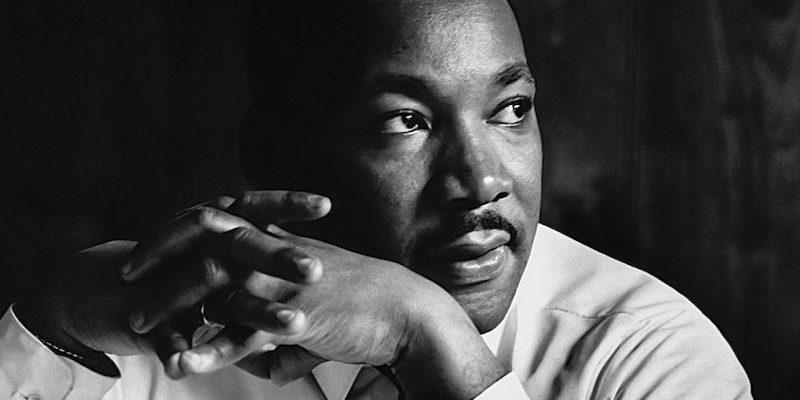
New works from Dr. Martin Luther King Jr.’s archives will finally be published, starting next year.
By Dan Sheehan
June 23, 2021, 11:21am
The publishing giant HarperCollins has reached an agreement with the estate of Dr. Martin Luther King Jr. to acquire world publishing rights to the late Civil Rights leader’s entire archives—a collection which contains some of the “most historically important and vital literature in American history.”
As reported by Publishers Weekly earlier today< read below > , the mega-deal gives HarperCollins world rights “to publish new books from the archives across all formats, including children’s books, e-books, audiobooks, journals, and graphic novels in all languages.”
Given the significance of the books in question, it seems strange that a deal like this one wasn’t made sooner, but this is welcome news nonetheless.
More welcome still is HC’s assertion that it will hire a dedicated archivist to oversee the project, and “engage prominent Black scholars, actors, artists, performers, and social activists to help bring Dr. King’s works to life.”
Way back in 1958, HC’s predecessor company Harper & Brothers published Dr. King’s very first book, Stride Toward Freedom: The Montgomery Story, which detailed the 1955–56 Montgomery bus boycott and described the conditions of African Americans living in Alabama during the era.
The first MLK titles to be published by HC are scheduled to drop in January 2022, to coincide with Martin Luther King Jr. Day.
HC Inks Deal with MLK Jr. Archives
By Rachel Deahl | Jun 23, 2021
In an agreement with the estate of Dr. Martin Luther King, Jr., HarperCollins has acquired world publishing rights to the archives of the civil rights leader. The publisher said the collection features some of the "most historically important and vital literature in American history."
Judith Curr, president and publisher of HarperOne Group, negotiated the deal with Amy Berkower, president, Writers House and agent for the King estate; and Eric D. Tidwell of Intellectual Properties Management, manager of the King estate. The deal gives HC world rights to publish new books from the archives across all formats, including children’s books, e-books, audiobooks, journals, and graphic novels in all languages.
HC said it plans to hire an archivist who will oversee the material in the archive and make it "available to all HarperCollins editors globally." HC added that it intends to "engage prominent Black scholars, actors, artists, performers, and social activists to help bring Dr. King’s works to life."
HC also has history with King. A predecessor company to HC, Harper & Brothers, published King's first book, Stride Toward Freedom: The Montgomery Story, in 1958.
All current his King titles, including those published by Beacon Press, will continue to be publishing by their current rights holders.
“We are thrilled to be the official publisher of Dr. Martin Luther King Jr.’s archives,” said Curr in a statement. “We view this as a unique global publishing program."
The first King titles to be published by HC are scheduled to drop in January 2022, coinciding with Martin Luther King Jr. Day.
SOURCE ARTICLE
Kobo Emerging Writer Prize, Books for Palestine, and an Intro to Booktok: This Week in Book News
https://kobowritinglife.com/2021/06/25/kobo-emerging-writer-prize-books-for-palestine-and-an-intro-to-booktok-this-week-in-book-news/
Original Post
https://aalbc.com/tc/profile/6477-richardmurray/?status=1579&type=status
User Feedback
Recommended Comments
There are no comments to display.

